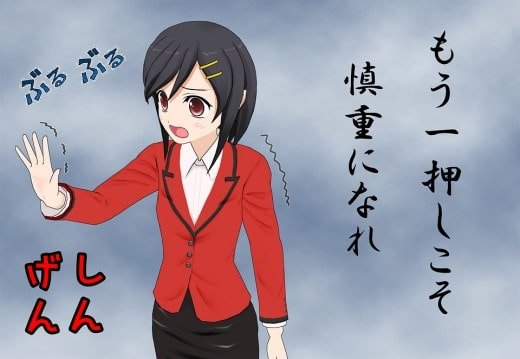
When you think of translation what really comes to your mind?
Is it the language pairs?
Is it the source or target language?
Is it the translation technique that will be used?
Is it the translation method that will be used?
I bet no one really asks themselves these kinds of questions unless you are the one Carrying out any form of translation. A translator is someone who helps in transforming content from one language into another language. The content might be in written, audio, or video form.
It is important to note that the methods used to translate these three formats vary from each other. You might do a word-for-word translation or you might do a literary translation. One thing you must note is that there are a lot of things that go into ensuring any kind of translation is done and done into perfection.
There are people who have this flawed notion that to be a translator, one only needs to know the target and source language and they will be perfect. Being a translator requires so much more than the mere understanding of a language.
I’ll give you an example of myself, I speak French fairly well and I speak the English language fluently. This does not make me qualify to be an English to French translator or vice versa, this only means I know the languages and that’s all. For me to be qualified as a professional translator I must be able to offer translations that align with cultural, linguistical, and technical aspects of the languages I’m dealing with. This is the most important thing to factor in when trying to be a translator.
In this article, we will closely look into some things you have to consider when trying to translate a video for dubbing.
What Important Questions Should You Ask Yourself Before Translating For Dubbing?
Dubbing is an audio-visual translation process that deals with the translation of one language audio video files to another language audio-video files. This means that its translation content in one format video into another language.
We look at some questions you need to ask as a translator to ensure that the project you are working on comes out perfectly.
The reason these questions are asked is that there is no standard way in which translation is done when it comes to dubbing. There are clients who would want certain aspects to be considered while there are others who couldn’t even bother with certain things. Therefore, you ensure to ask questions so you deliver the exact translation that your client needs.
- If the video has a person speaking in front of the camera, are you looking for lip-syncing? The reality about translation for dubbing is that you should be able to provide translations that will allow for lip-syncing during post-production. What this means is that you must either condense or expand the translated versions of your script if they are either longer or shorter when put in comparison with the original audio. We all know that certain statements might be longer or shorter in other languages meaning that they must either be condensed or expanded in order for them to compare with the original audios. You should be able to inquire whether lip-syncing is a must or not.
- Do you want to replace the voice completely or do you want to leave the original voice in the background? There are two different types of dubbing in film production. There is the kind where the original audio is scrapped off completely and the video remains with the dubbed audio and the one where the dubbed or translated audio is mounted on top of the original audio. As the translator dealing with the dubbing process, you should be able to ask this. Normally this is information offered freely to the translator but at times this information might not be given freely and you should be able to ask and get information on the same.
- Does the length of your audio need to stay at the same original length or is there flexibility to change the duration if needed? I know you are looking at this question and wondering, “Why would anyone want to change the length of audio on a video, doesn’t that mean distorting the whole video?””. It is very important to note that during video translation for dubbing changing the length of audio would literally mess up the whole video. This means that there will be no lip synchronize because originally audio tracks are usually mounted on top of scenes in order for them to create that aspect of lip-syncing. If it is slightly shortened or lengthened then the whole video will be off. This is a very good question to ask.
- Do you have more footage in case we need to modify the video for length? By now you are wondering why would someone want to modify or add more footage on to it when the video file is completed when being handed to them. These questions are very important because not all the translators out there would understand that the video file handed to them is complete and there is no room to either add or remove anything from it. You might be those kinds of translators who believe that anything is possible and modifying a video file is possible. Be sure to ask this question so that you don’t end up making a mess of your client’s original work.
- If the video has titles and on-screen text, do you need the on-screen text translated? There are video files that usually come with on-screen texts which might be subtitled and you must ask your client if they are supposed to be translated too. A lot of times it is hard for a client to bring you a video with on-screen texts but it is not impossible for this to happen. Asking this question will allow you to know whether you are only translating the audio content or the text content. Asking to be in the know is much better than taking things into your own hands and making a conclusion that is not right.
- What are the requirements for your subtitles? File type, the color of the background, etc. We have been talking about video translation for dubbing but you should remember there is also video translation for subtitling. There are specific rules and guidelines for subtitling but then there are clients who have specific preferences and you should be able to cater to them by asking. You should ask what kind of file type they want their subtitles to be in, the color of the subtitles, the fonts to be useful, and so on and so forth. Asking will always save you a lot of back and forth.
- If there is music in the background, do you want to use the same music, use new music, or eliminate it? When I worked in a dubbing company, I used to see the sound engineers change the music and effects from the original into another version after dubbing was completed. Once I asked why that was the case, and I was told that it is because the client requested that. This is why it is important to ask the client whether they want the music and effects to remain the same, or they would want you to switch it up a little. There are those clients who wouldn’t want anything changing but there are those who would want that to change.
- What are your requirements for the voices needed? For example Certifications, quality of the voices, genders. Video translation needs the prowess of voice actors in order for it to be complete. If you have been tasked with casting for these voice actors, you should know what kinds of voice actors your client needs or wants. Should they be certified professionals? Should they be native or fluent speakers of your target language? What kind of voices do they need? These are really important questions to ask. Be sure to run all the voice actors through your clients before they start working on the project to ascertain that the client gives a go-ahead.
- What are the specifications for the final video file? The last question you should ask is what should the final translated video file be like. Clients will let you know in detail what they expect of that. If you don’t ask then you won’t know and chances are the client knows you are a professional and should know all these things. Save yourself that hectic back and forth by asking this question.
There are so many other questions out there that would have made the cut on this list, but these are the most important questions that you as a translator should be asking. Whether you are a freelance translator or a service provider company. Asking questions prior to a project will ensure that when you do start on the project it will be a smooth ride. Be sure to always ask these questions because you will also save yourself a lot of back and forth with your client.






Comment (1)
depobola alternatif
September 1, 2020I do not even know the way I finished up here, but I assumed this put up used to
be great. I do not recognize who you are but
certainly you are going to a well-known blogger if you happen to
aren’t already. Cheers!
Comments are closed.